The European Union shouldn’t be building strategic, critical dependency on authoritarian regimes such as China, Finnish Prime Minister Sanna Marin said on Friday. Marin spoke as she arrived for the second day of an EU summit in Brussels, where European Union leaders are having a “strategic discussion” on their ties with Beijing, Reuters reports.
“That doesn’t mean there can’t be any economic relations with China but it means we shouldn’t be building that kind of strategic and critical dependencies on an authoritarian country”, she said.
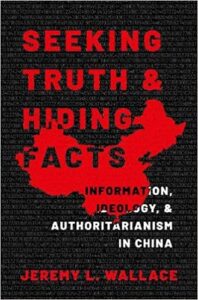 Chinese president Xi Jinping’s work report to the 20th Communist party congress this week is more ideological in tone and content than any that we have seen in the past 40 years, notes former Australian premier Kevin Rudd. It underscores the Marxist-Leninist worldview that drives Xi’s ambition of making China the pre-eminent regional and global power by mid-century, he writes for the Financial Times. More disturbingly….
Chinese president Xi Jinping’s work report to the 20th Communist party congress this week is more ideological in tone and content than any that we have seen in the past 40 years, notes former Australian premier Kevin Rudd. It underscores the Marxist-Leninist worldview that drives Xi’s ambition of making China the pre-eminent regional and global power by mid-century, he writes for the Financial Times. More disturbingly….
It is now clear that the Chinese Communist party no longer rules out the possibility of a major war in the foreseeable future. Xi describes a “severe and complex international situation”. The party, he says, must be “prepared for dangers in peacetime” as well as “preparing for the storm”. And in doing so, Xi calls on the CCP to continue to adhere to “the spirit of struggle.”
‘Homecoming,’ the most-watched film in China this week (above), about daring officials who save Chinese citizens trapped overseas by war, neatly matches a central theme of leader Xi Jinping’s agenda at the twice-a-decade Communist Party meeting in Beijing — that the world is a dangerous place and China needs to protect itself, according to the Post’s Christian Shepherd and Lyric Li:

National Endowment for Democracy (NED)
China’s security presence is increasingly visible around the globe. Research released Monday by the Center for American Progress, a liberal-leaning think tank, found evidence of increased overseas activities by the Public Security Ministry under Xi, with 60 percent of publicly disclosed bilateral police meetings and 73 of 77 capacity-building sessions between 1995 and 2021 taking place since he took office a decade ago.
“Global efforts to implement the CCP’s directive to ‘actively build a law enforcement security cooperation system with Chinese characteristics’ pose significant challenges to the United States and other liberal democracies,” report author Jordan Link noted.
“This is Beijing going from a negative agenda — ‘we don’t like the current order, which is Western-dominated and imposed on us’ — to China actually launching something like an alternative vision,” said Helena Legarda, lead analyst at the Mercator Institute for China Studies in Berlin.
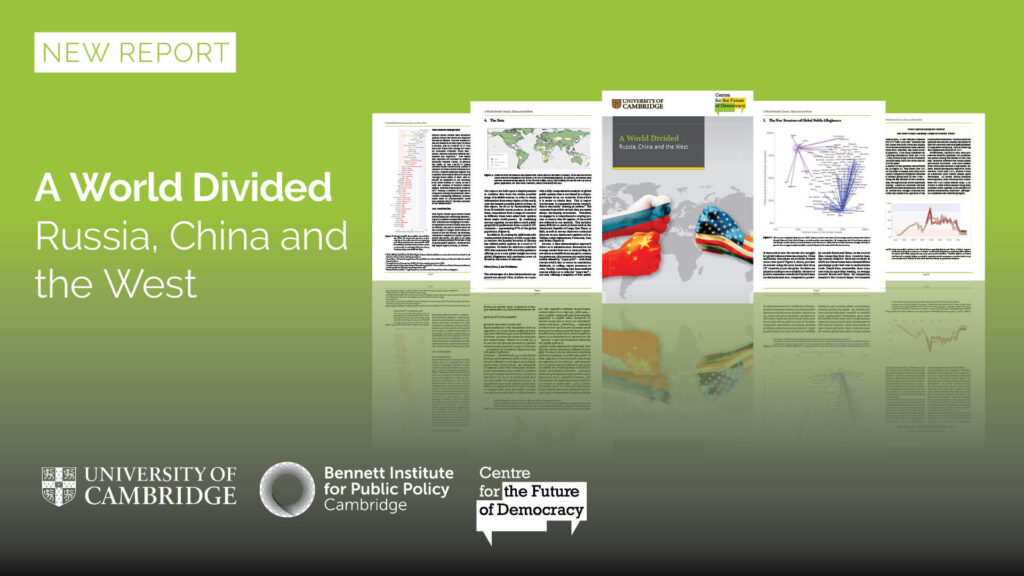 Among the 1.2 billion people who inhabit the world’s liberal democracies, three-quarters (75%) now hold a negative view of China, and 87% a negative view of Russia, according to a new report, published today by Cambridge University’s Centre for the Future of Democracy (CFD). Yet among the 6.3 billion who live in the world’s remaining 136 countries, the opposite is the case – with 70% of people feeling positively towards China and 66% towards Russia.
Among the 1.2 billion people who inhabit the world’s liberal democracies, three-quarters (75%) now hold a negative view of China, and 87% a negative view of Russia, according to a new report, published today by Cambridge University’s Centre for the Future of Democracy (CFD). Yet among the 6.3 billion who live in the world’s remaining 136 countries, the opposite is the case – with 70% of people feeling positively towards China and 66% towards Russia.
“China offers a model of authoritarian modernisation in which personal liberties are forsaken for the promise of economic growth and national prestige,” said co-author Dr Roberto Foa, co-director of the CFD at Cambridge’s Bennett Institute. “The relative appeal of China versus the United States may not simply be a question of America’s attractiveness as an ally, but as a political model.”
How Chinese leaders are selected is the focus of two books by political scientists who use newly opened archives or data-driven research to reinterpret recent events, better understand Xi’s 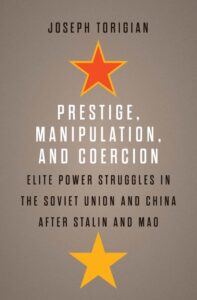 China, and imagine a possible post-Xi future, analyst Ian Johnson writes for the NYRB:
China, and imagine a possible post-Xi future, analyst Ian Johnson writes for the NYRB:
- In Coalitions of the Weak, Victor C. Shih of the University of California at San Diego looks at how top leaders from Mao to Deng to Xi have eliminated their peers and surrounded themselves with weaker leaders who help them run the country. This ensures that the strongman remains unchallenged, but it doesn’t bode well for policy in his lifetime or for his legacy.
- In Prestige, Manipulation, and Coercion, Joseph Torigian of American University is less interested in coalitions than the mechanics of transfers. Challenging conventional analyses of how authoritarian leaders are chosen, he argues that factors such as ideology and patronage matter less than brass-knuckle tactics.
Xi has remade China ideologically, socially, and economically, bringing the country under his increasingly iron-fisted, centralized, and personalistic rule and flexing its muscles abroad as never before, adds the Journal of Democracy, providing helpful context with seven 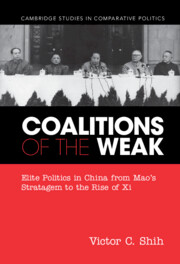 essential Journal of Democracy essays on China under Xi:
essential Journal of Democracy essays on China under Xi:
How Resilient Is the CCP? (2022) Xi Jinping undercut China’s political norms to cement his own power and brand of rule, but in so doing has introduced new vulnerabilities for the regime. By Yuen Yuen Ang
Hong Kong: How Beijing Perfected Repression (2022) With the new National Security Law, the CCP has honed a sophisticated tool for hollowing out the city, whose rights and freedoms Beijing had once promised to respect. By Michael C. Davis
Totalitarianism’s Long Shadow (2021) Xi’s neo-Stalinist strategy has unleashed new challenges and tensions for the Communist Party’s long-term prospects for survival. By Minxin Pei
From Tiananmen to Neo-Stalinism (2020) The policies of top Chinese leaders help explain why post-Mao China’s remarkable economic development has not aided democracy. By Minxin Pei
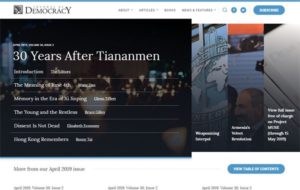 30 Years After Tiananmen: Dissent Is Not Dead (2019) The CCP wields highly effective means to quash dissent, but Chinese intellectuals and interest groups continue to push for change. By Elizabeth Economy
30 Years After Tiananmen: Dissent Is Not Dead (2019) The CCP wields highly effective means to quash dissent, but Chinese intellectuals and interest groups continue to push for change. By Elizabeth Economy
The Road to Digital Unfreedom: President Xi’s Surveillance State (2019) Chinese authorities are using facial-recognition software, big data, and other technologies to monitor and control China’s citizens. By Xiao Qiang
China in Xi’s “New Era”: The Return to Personalistic Rule (2018) Earlier efforts to institutionalize collective leadership have not stopped Xi Jinping from grabbing all the levers of power. By Susan L. Shirk







